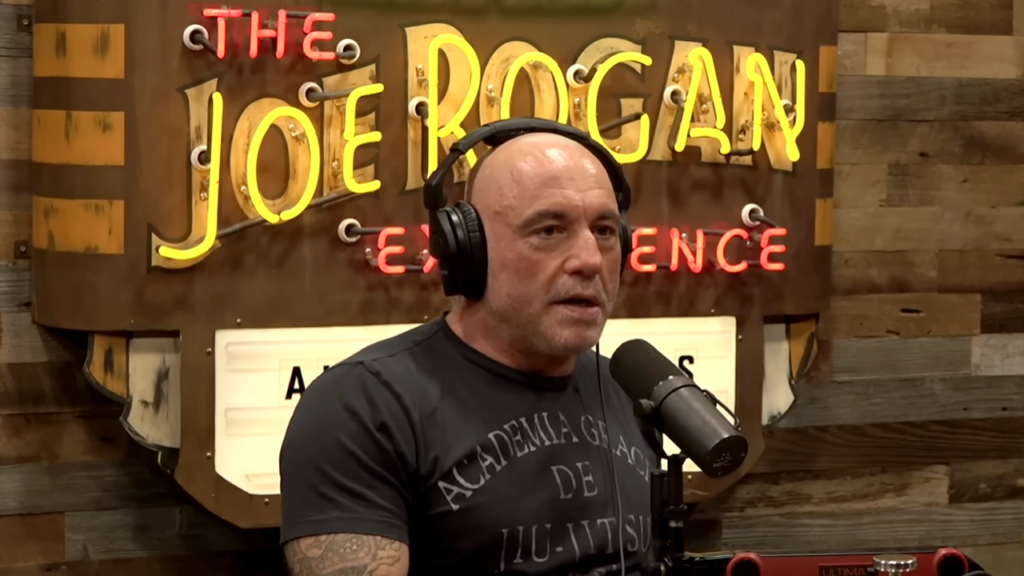In a recent episode of the podcast “Triggernometry,” host Joe Rogan expressed his admiration for the values and teachings found within religion. Engaging in a thought-provoking discussion with hosts Francis Foster and Konstantin Kisin, the trio deliberated on the significant role religion can play in cultivating inner peace and moral clarity. Their dialogue touched on how many individuals, particularly younger generations, are rediscovering faith amidst a backdrop of declining atheistic ideologies.
| Article Subheadings |
|---|
| 1) The Value of Church Attendance |
| 2) Understanding Religious Narratives |
| 3) The Philosophical Discussion around Christianity |
| 4) Reflections on the New Atheist Movement |
| 5) The Role of Morality in Religion |
The Value of Church Attendance
During the discussion, Joe Rogan conveyed his appreciation for attending church and learning from its teachings. He described the collective experience of congregants striving to better themselves and find moral solace. “I do too,” he stated, agreeing with Kisin’s renewed commitment to church services, and adding, “It’s a bunch of people that are going to try to make their lives better.” This sentiment laid the foundation for the group’s exploration of the benefits that can emerge from practices like regular church attendance.
Rogan pointed out that the atmosphere of church services can foster a sense of community and support, which are essential for personal growth and inner peace. He believes that these shared experiences serve as a valuable method of building social connections that can enrich individuals’ lives.
Understanding Religious Narratives
In their conversation, the hosts explored the complexity of religious narratives, particularly in the context of Christianity. Rogan noted that many self-identified intellectuals dismiss religion as simplistic or irrelevant, referring to it as mere “fairy tales.” However, he argued that such viewpoints fail to grasp the historical and cultural significance imbued in these narratives. “There’s a lot of people that just like to dismiss Christianity as being foolish,” he stated.
Rogan emphasized that recognizing the historical context and the oral traditions that have contributed to religious texts is crucial for understanding their deeper meanings. “It’s a confusing history because it was a long time ago,” he remarked. This comment alludes to the idea that historical religious figures and events should be studied with nuance and appreciation, even if one’s personal beliefs differ.
The Philosophical Discussion around Christianity
Among the topics discussed was the impact of Jesus Christ as a historical and philosophical figure. Rogan noted that Jesus embodies the ideal model for human interaction and ethical behavior. He described Jesus as having “the best plan for how human beings should interact with each other” and recognized the profound implications of his teachings throughout history.
In stating that Christianity offers a compelling narrative filled with lessons about compassion, forgiveness, and self-sacrifice, Rogan highlighted the importance of these concepts for fostering a kinder society. He added, unlike many historical figures, Jesus is one whom a consensus of historians agree existed, providing a unique point of reference for discussion.
Reflections on the New Atheist Movement
Both Rogan and his guests reflected on the New Atheist movement that gained traction in the early 2000s. Revisiting their past interests in atheism, they expressed a gradual shift in perspective as they noticed some of its proponents failed to embody the level of enlightenment they initially admired. “A lot of those guys fell apart,” Rogan commented, highlighting the disillusionment that came with the movement’s decline.
By reassessing their views, both Rogan and Kisin openly acknowledged that they found greater solace and community in religious traditions than they had previously recognized. This evolution in thinking serves as a testament to the changing landscape of belief systems in contemporary society.
The Role of Morality in Religion
Rogan articulated a crucial point regarding morality, expressing concern over relying exclusively on personal whims for ethical decision-making. He stated, “If you’re just relying on your whims…then you know what you get? You get those people that are unable to answer the question of whether or not you should protect an unborn fetus.” In contrast, he emphasized that religion provides a framework that can guide individuals in grappling with ethical dilemmas.
This perspective resonates with many who seek guidance in a rapidly changing world. The conversation underscored the idea that a moral compass might not only stem from inborn ethics but can also come from collective teachings found in religious texts and community practices.
| No. | Key Points |
|---|---|
| 1 | The significance of church attendance in fostering community and inner peace. |
| 2 | Rogan critiques dismissive attitudes toward Christian narratives as simplistic. |
| 3 | Jesus Christ is acknowledged as a pivotal historical and moral figure. |
| 4 | Rogan and guests reflect critically on the New Atheist movement. |
| 5 | Religion is depicted as a vital guide for moral decision-making in society. |
Summary
The recent discussion led by Joe Rogan raises important points about the value of religion in contemporary society. By emphasizing the potential for community, philosophical guidance, and moral clarity, the conversation reflects a growing recognition among younger generations of the importance of religious teachings. This dialogue highlights the nuanced understanding of faith as more than mere dogma; it becomes a source of guidance and a framework for ethical living.
Frequently Asked Questions
Question: Why does Joe Rogan value attending church?
Joe Rogan values attending church because it provides a space for community engagement and personal growth, as congregants come together to seek improvement in their lives.
Question: How does Rogan view the dismissal of religious narratives?
Rogan believes that dismissing religious narratives as mere fairy tales overlooks the historical and cultural complexities they embody and the wisdom they offer.
Question: What impact did the New Atheist movement have on modern belief systems?
The New Atheist movement initially promoted skepticism toward religion; however, Rogan and his guests noted its decline has led to a resurgence of interest in faith, particularly among younger individuals seeking moral guidance.
